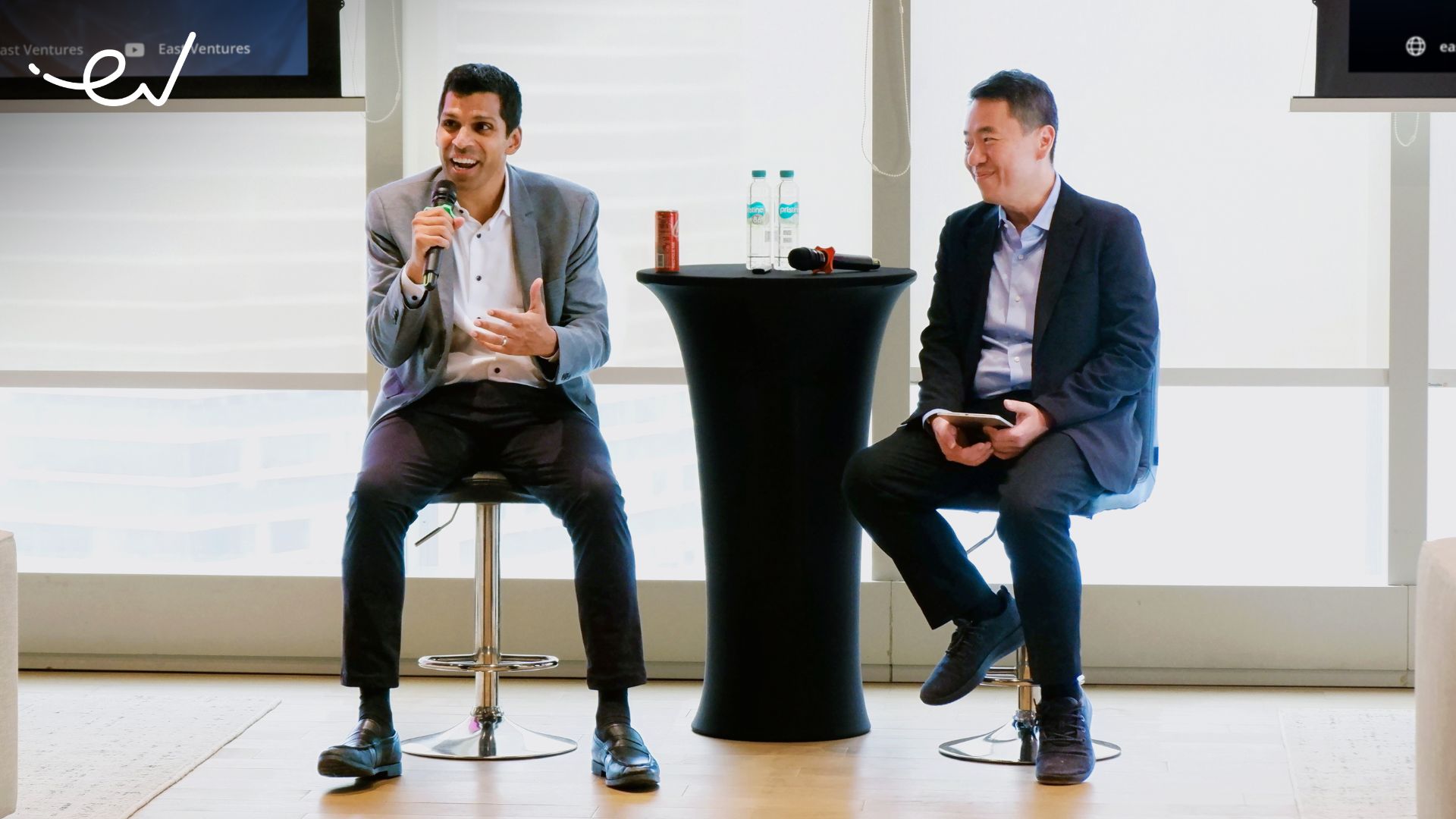AI (artificial intelligence) is rapidly transforming emerging markets in Southeast Asia, particularly in countries like Indonesia. There, a youthful, tech-savvy population and growing digital infrastructure have spurred tremendous growth in generative AI platforms like ChatGPT. According to OpenAI, the number of weekly active users has increased threefold in just over a year, positioning the market among the top five globally for weekly ChatGPT usage.
Far from being just a novelty, AI is now deeply integrated into business, education, creative industries, and personal decision-making. It addresses key challenges such as limited access to quality education and uneven healthcare services.
This widespread adoption of AI drives economic growth by democratizing access to information, automating routine tasks, and enhancing digital literacy. In sectors like education and small business, AI enables personalized learning, faster content creation, and improved customer engagement. This has empowered individuals, entrepreneurs, and institutions to boost productivity and unlock new opportunities for innovation and development across the region.
In a recent discussion hosted by East Ventures, Roderick Purwana, Managing Partner at East Ventures, was joined by Aaron “Ronnie” Chatterji, Ph.D., Chief Economist at OpenAI. Together, they highlighted several key insights on how AI can be strategically leveraged to drive local economic growth.
Localization brings local impact
The core infrastructure of today’s AI foundation models, LLM (Large Language Models), and generative platforms has been largely developed and maintained by a few dominant players outside Southeast Asia. However, the transformative potential of these technologies lies in how local innovators adapt and apply them.
In emerging markets like Indonesia, Ronnie and Roderick spoke about how developers and startups have the opportunity to leverage existing global platforms to create locally relevant, high-impact solutions. As these technologies become cheaper and more accesible, innovators can focus on solving real-world problems rooted in cultural, geographic, and economic contexts.
Several companies backed by East Ventures, such as Nexmedis, Ruangguru, Meeting.ai, Tictag, GENEXYZ, and bythen have already implemented the technology to address local needs, demonstrating how AI can be tailored to solve challenges across industries.
“Education is a particularly compelling opportunity,” Ronnie noted. “There will likely be many global and local resources involved, but I believe it will take an Indonesian entrepreneur to truly crack that code.”
For instance, many Indonesian students in rural areas still struggle to access quality education, while those in more urbanized areas benefit from qualified teachers and standardized learning curricula. In these contexts, AI has the potential to help close the gap by providing scalable, accessible learning solutions.
Generative AI tools can offer personalized tutoring, adaptive learning content, and language support tailored to Indonesia’s diverse linguistic landscape. These tools don’t replace teachers—they extend their reach, enabling scalable, affordable education across regions that were previously underserved.
Ruangguru, for example, addresses challenges in the education sector through a platform that combines self-learning tools, live teaching, AI-powered features, and hybrid learning centers in more than 120 cities. As reported in the East Ventures Sustainability Report 2025, it enables the company to reach over 45 million users across Southeast Asia, with 75% located outside major cities.
Across the nation, AI has become a huge part of the daily lives of Indonesians, with high usage in information searches, online shopping, and photo and video editing—according to a survey conducted by Katadata Insight Center. The survey also reveals that AI can improve efficiency and optimize decision-making based on its data processing capabilities, ultimately accelerating business growth and the digital economy.
To achieve this, startups can seize a plethora of opportunities to build AI interfaces or applications that specialize in local context, seeing how users seek more locally contextual outputs, or answers that align with local values, norms, and languages.
Far from being a simple overlay, these applications can offer curated content, culturally sensitive communication, and integration with local data sources and regulations.
Ronnie also noted the broader landscape of AI applications, stating, “While attention often centers on OpenAI and foundational model developers, the most significant opportunities are downstream, in sector-specific applications across finance, healthcare, education, energy, and retail. These specialized solutions will underpin the growth of many successful companies.”
At East Ventures, we have seen this in various verticals. In healthcare, for instance, generative AI can assist with early diagnostics, patient education, and administrative support—all adapted to national medical protocols and available in native languages.
In Indonesia, Nexmedis, one of East Ventures’ portfolio companies, has developed an AI-powered Health Information System designed to enhance healthcare efficiency by minimizing administrative errors and enabling healthcare professionals to focus more on patient care. With a fast diagnosis turnaround time of only three seconds, Nexmedis has achieved a 90% reduction in manual administrative tasks across more than 80 cities and districts, with 85% of these areas located in remote regions.
For retail and commerce, AI chatbots and recommendation engines can be localized to reflect consumer behavior in Indonesian markets, offering more meaningful engagement than generic AI models.
In that case, GENEXYZ leverages AI-powered virtual influencers with advanced meta-human technology to revolutionize retail marketing. Unlike traditional influencers, these fully customizable virtual personas are tailored in style, personality, and appearance to resonate deeply with local culture, language, and values.
Moreover, bythen develops unique and proprietary digital characters that empower individuals to become influential virtual creators. The company provides users with the opportunity to generate creative content, livestream, and is powered by AI.
Such adaptations are not just useful; they are strategic advantages. The ability to contextualize global tools into local realities allows emerging market innovators to move quickly, solve pressing problems, and build businesses with defensible value propositions. It also democratizes the benefits of AI, ensuring they are not limited to high-income countries with advanced infrastructure.
Adapting the workforce for an AI-driven future
Artificial intelligence is unlocking powerful new efficiencies across emerging markets, accelerating workflows, reducing costs, and enabling startups to scale faster than ever before. What needs to go hand-in-hand is ensuring that, as technology advances, we are also successfully preparing the Indonesian workforce for an AI-driven future.
Ronnie and Roderick emphasized that human-AI collaboration can shape skills like creativity, emotional intelligence, ethical reasoning, and collaboration. These qualities cannot be replicated completely by machines, and they will become the foundation for the next wave of innovation across sectors like education, healthcare, and small business.
To seize this opportunity, the local community, governments, and industry leaders must work together to build inclusive digital infrastructure, promote upskilling initiatives, and encourage local innovation ecosystems. Ronnie underscored this point during the discussion: “To maximize AI’s potential, we must work together with people, business leaders, and governments all around the world to make this happen.”
One of East Ventures’ initiatives to accelerate AI adoption and innovation is through IndoBuild AI, a platform for AI innovators to learn, collaborate, and solve real-world challenges in Indonesia. We collaborate with diverse stakeholders, from ecosystem enablers and startup founders to the government, like the Expert Staff for Health Digitalization of the Minister of Health of the Republic of Indonesia, Izak Jenie.
Considering that labor is relatively affordable and computing infrastructure is still developing here in Indonesia, the cost-benefit equation differs from that of high-income countries. This means emerging markets will need to craft AI strategies that align with local realities—whether that involves public investment in data centers, incentives for AI startups, or policies that support digital inclusion.
Ultimately, all stakeholders need to collaborate to achieve one shared goal: making AI a powerful engine for equitable economic growth across the region.
As the pioneering and leading sector-agnostic venture capital (VC) firm in Southeast Asia, East Ventures acknowledges the significant role AI plays in digital economy expansion in emerging markets. We see that AI can serve as a catalyst for startups to grow their businesses and drive national economic growth.
In the face of global uncertainty, we choose not to be pulled down by gravity—we are defying gravity and standing firm in our belief in the future of Southeast Asia startups.
If you are a startup founder building an AI-powered business and looking for funding, send your pitch here.







